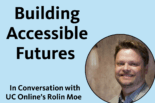UC San Diego Health is reshaping its culture through the Lean Engagement System (LES), a people-first approach that has driven more than 700 improvement projects since 2018. Led by Mojgan Amini, director of transformational health care, and Ashley Gambhir, executive director for transformation, the initiative empowers every team member to contribute to operational excellence and ensures the organization adapts quickly to the changing health care landscape.
Since its launch, the LES has enhanced patient care and transformed how services are delivered across the organization. Even the system itself has evolved—most recently into “Lean 2.0”—to strengthen independent problem-solving and make continuous improvement second nature.
Four essential steps to igniting results
In an interview with UC Tech News, Amini and Gambhir outlined the updated system and emphasized four practices that catalyze improvements across UC San Diego Health:
- Organizational Alignment and Execution – Success comes from linking top-level strategy with daily operations. Teams create action plans that connect long-term, short-term, and daily activities directly to overarching goals. Mid-level leaders play a pivotal role by translating priorities into actions, coaching teams, and reinforcing Lean practices.
- Structured Communication for Agility – A rhythm of daily huddles keeps teams aligned and responsive. Operational issues are surfaced and escalated, if necessary, to senior leadership, sometimes reaching the chief executive officer by mid-morning. This ensures timely decisions and coordinated action.
- Shared Responsibility for Problem-Solving – Employees at all levels are empowered to proactively address challenges, either implementing solutions or proposing recommendations to supervisors. The emphasis shifts from reporting issues to resolving them
- Empowerment and Leadership Development – Leadership commitment includes creating space for junior employees to lead initiatives, take risks, and step outside their comfort zones. This approach prioritizes cultivating mindsets and processes over guaranteed outcomes.he focus is on building mindsets, behaviors, and processes that enable continuous improvement.
Making daily improvement a system-wide practice through a cascade system of communications
The Lean Engagement System ensures that every employee’s insights help shape outcomes. Through daily tiered huddles, information flows from the front line to executives—sometimes reaching the CEO by 10:30 a.m. for urgent matters.
“That’s our Lean Engagement System. It helps us run operations, but it also reminds us that we’re always looking for improvements and aligning our daily work with the highest priority goals of the organization,” Amini said.
‘Learn it, try it, teach it, live it’ – Lean 2.0
Launched in 2024, Lean 2.0 builds on the original system with a stronger emphasis on independent problem-solving. Employees are encouraged to take initiative without waiting for direction.
Amini explained, “Our motto is ‘learn it, try it, teach it, live it,’ with the goal of making continuous improvement second nature.”
The Secret Sauce: Leadership, Culture & Mindset
UC San Diego Health’s success comes from a people-first approach. Leaders stay actively engaged, frontline staff get free coaching, and contributions are celebrated. Mid-level managers, who bridge strategy and daily execution, are key to sustaining progress.
What has been most meaningful:
- Mojan cited that metrics track operational excellence, but the most meaningful outcomes are human. “It’s not the tools, it’s not the back-end operation… it’s the impact on each and every patient and care provider, and that’s been really touching for me,” said Amini.
- Gambhir – adds, “One of our coaches came up with the concept of moving from a ‘sea of frustration’ to the ‘sands of satisfaction.‘ Meaning, that people have the perspective they need to move forward. And that is really motivating and inspiring.”
Recognition and Looking Ahead
Although their 2025 UC Tech Awards nomination did not secure a win, Amini and Gambhir valued the opportunity to share their work with the UC Tech community. They believe cultural transformation is essential for innovation and sustainability and plan to reapply in 2026.
Related Reading:
Healthcare Transformation Team UC Tech Awards Application Form 2025 – Healthcare Transformation Team
Contact:

Director, Transformational Healthcare
UC San Diego Health

Executive Director, Transformation
UC San Diego Health

Transformational Healthcare Coach
UC San Diego Health
Author

Digital Design & Content Intern
UC Office of the President







